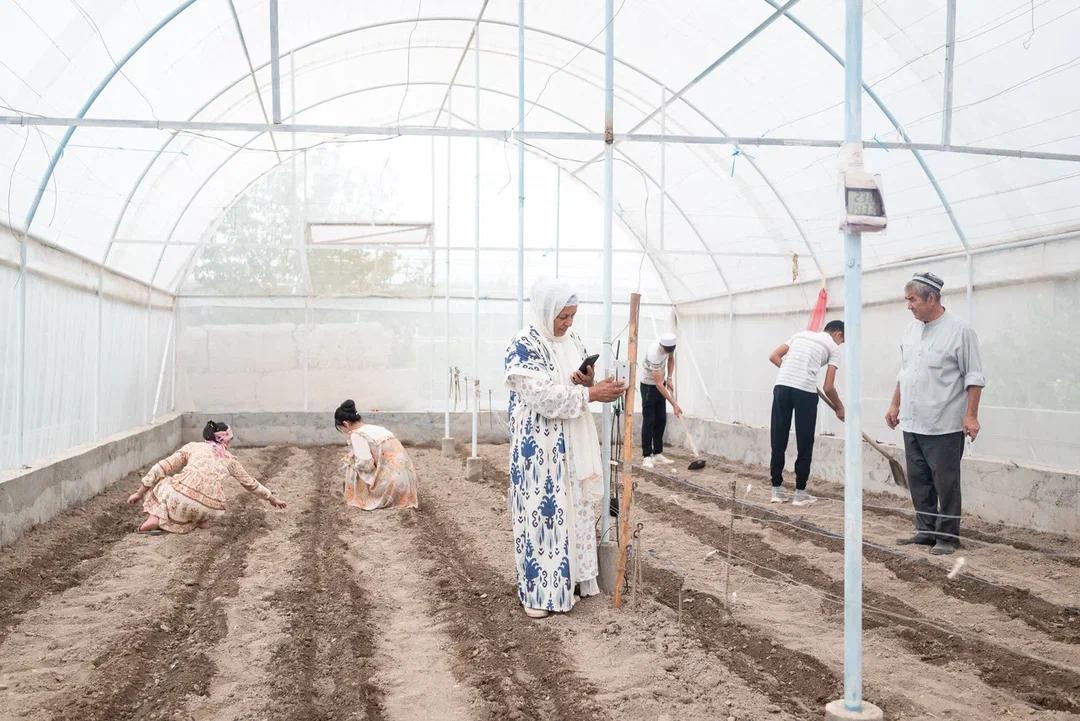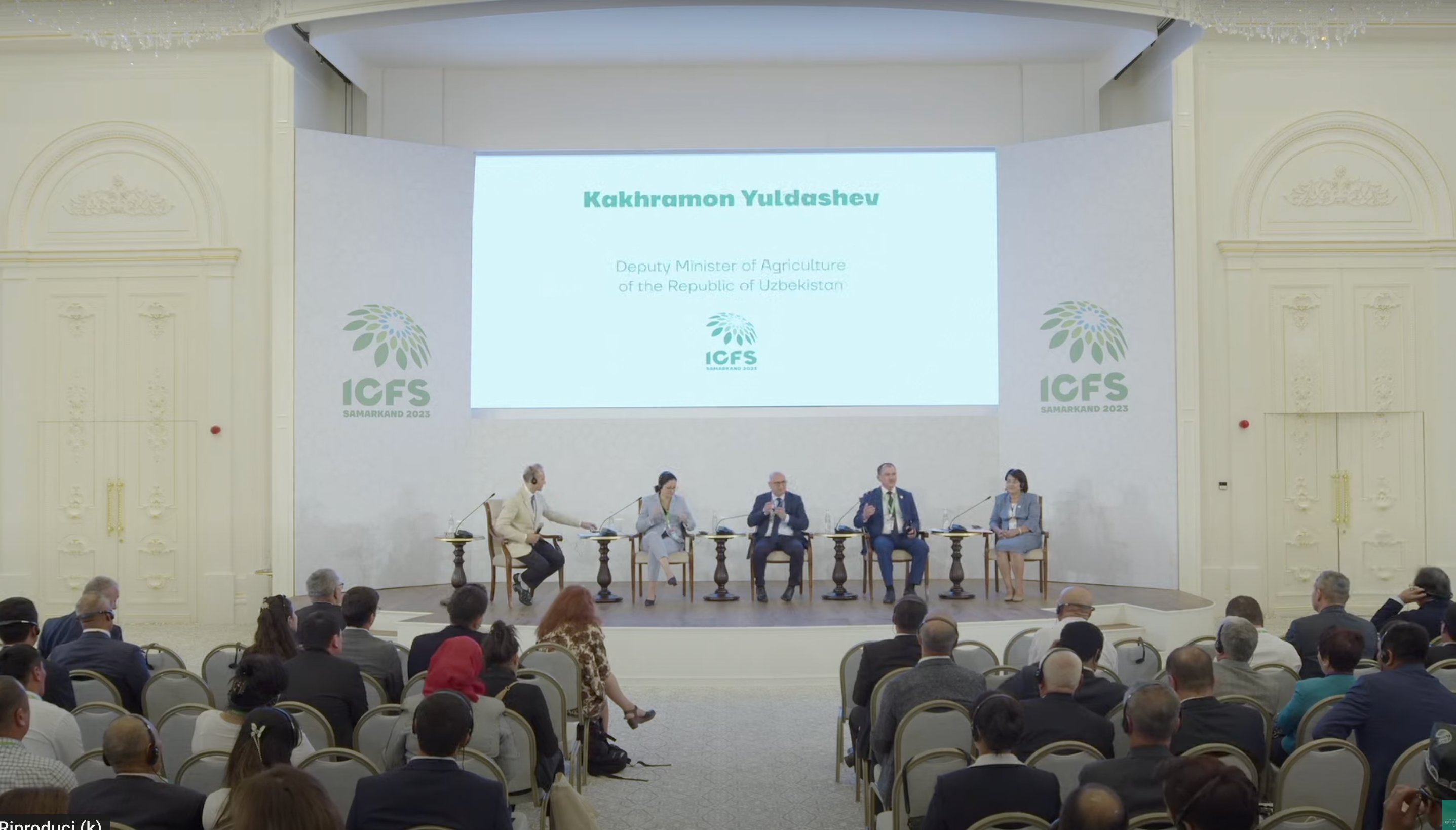Innovation and digitalization will shape future food systems in Europe and Central Asia

©FAO/Daniil Dolidze
In historic Samarkand, Uzbekistan, leading thinkers from around the globe convened for an international conference on food security to discuss a more sustainable, equitable, and resilient future for the world's agrifood systems. The event was organized by the Government of Uzbekistan, with technical support of the Food and Agriculture Organization of the United Nations (FAO).
Speakers and participants discussed the current state of global food security, identified key challenges and viable solutions, and evaluated progress towards achieving the Sustainable Development Goals (SDGs), specifically SDG 2 on ‘Zero Hunger.’
Amid mounting global challenges such as climate change, the conference aimed to outline a future where food systems are more sustainable, inclusive, and resilient through innovative and digital approaches. The Samarkand Declaration emphasizes the transformative potential of innovation and digitalization in enhancing food accessibility for vulnerable and rural populations.
On the sidelines of the conference, FAO displayed affordable options aimed at smallholders. This exhibit highlighted the Digital Villages Initiative and "Smart Farming for the Future Generation" project, which seeks to enhance agricultural production and revitalize rural areas by democratizing access to digital technologies. The exhibition displayed low-cost, yet high-quality greenhouse sensors piloted in two Uzbek villages to promote smarter farming methods.
“Innovation is the key to sustainable agriculture and rural development,” said Daniela Di Gianantonio, FAO’s Digital Agriculture Team Leader. “By empowering youth to replicate these devices at low cost, we can make technology more affordable to smallholders.”
One key technical session focused on digital agriculture and innovation within the country and the region. Vincent Martin, Director of the Office of Innovation at FAO, set the tone by emphasizing the urgent need for transformation in agrifood systems. He described the challenges as "complex, intertwined, and escalating." The panel included high-level officials from Hungary, Uzbekistan, and North Macedonia, as well as from the Tashkent State Agrarian University, who each emphasized the critical role of digitalization in national agricultural strategies. Deputy Minister of Uzbekistan, Kakhramon Yuldashev, outlined plans for a “comprehensive programme of actions” currently in development with the technical assistance of FAO. State Secretary for the Ministry of Agriculture of Hungary, Aniko Juhasz spoke about her country's pioneering digital agriculture strategy as a “beacon for European countries” and emphasized the role of the European Union’s Common Agricultural Policy in shaping innovation. Trajan Dimkovski, State Advisor on rural development in North Macedonia, promoted the concept of “collective intelligence, “ and advocated for sharing expertise among farmer to benefit their members. He also called for targeted programmes to empower rural youth and women in adopting digital agricultural tools, announcing support for FAO’s national digital strategies to begin in North Macedonia in 2024.
The conference served as an effective platform for exchanging ideas and strategies and advanced the global conversation on sustainable agricultural development and food security. FAO's participation underscores its broader commitment to improving food systems by localizing SDGs and involving key actors, such as local authorities and vulnerable populations, in digital agriculture and innovation. The conference highlighted the vital role of innovation and digitalization in transforming agriculture for the benefit of small-scale farmers and to allow the integration of innovative food and climate strategies into national policies.

